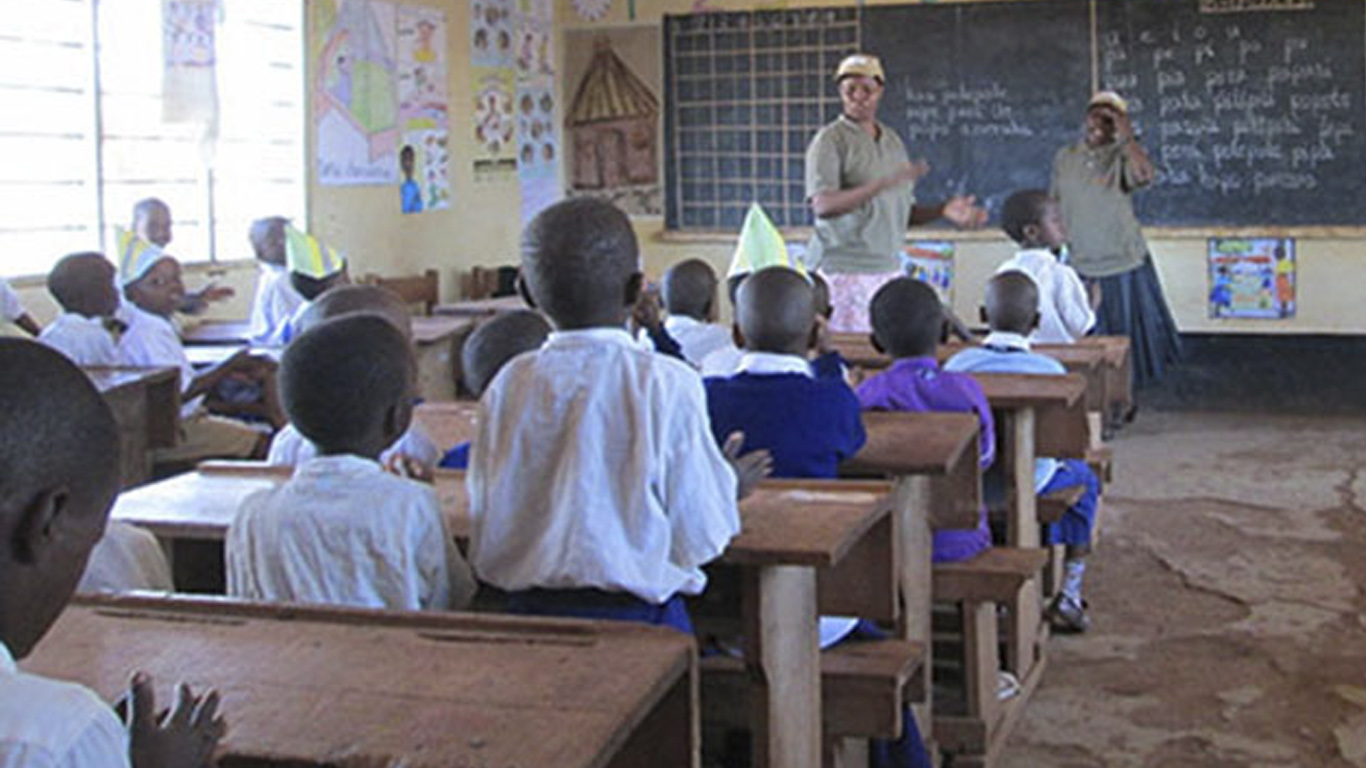Dubai Cares
The Tanzania Primary Education Development Plan III (PEDP) 2012–2016 and the new draft, Education Sector Development Plan 2016/2017–2020/2021, are the policy documents that articulate the core priorities and the overall strategic direction across the education sector for the next five years. These documents highlight the need for the education sector to improve quality and increase children’s access to pre-primary classrooms.
Fursa kwa Watoto (Opportunities for Children, hereafter FkW) is a package of pre-primary education interventions. FkW, supported by Dubai Cares, was introduced in Tanzania in 2014 by a consortium of partner organizations (including Aga Khan University, Children in Crossfire, UNICEF, and local education partners Maarifa and TAHEA) and was designed to help the country achieve pre-primary education goals. The FkW collaborative sought to facilitate school readiness and better learning outcomes for Tanzanian children by developing an effective and scalable package of quality pre-primary education interventions. From 2014–2016, the collaborative designed the FkW package in line with Tanzanian policies and structures within the Ministry of Education and Vocational Training (MoEVT), the President’s Office for Regional and Local Government (PMO-RALG), and the Tanzanian Institute of Education (TIE).
Mathematica and CSR Group Africa are conducting monitoring, evaluation, and learning (MEL) activities to provide actionable information and guidance to policymakers and implementers to improve quality in preprimary education. We will conduct quantitative student assessments, classroom observations, an enrollment study, a costing study, and a range of qualitative activities. Priority questions include 1) How are schools managing the new fee-free education policy? 2) What FkW components improve the quality of preprimary education? 3) How can successful practices and activities be sustained in a cost effective manner? 4) What policy, programmatic, and systemic recommendations are required to help schools and teachers overcome the contextual challenges and persisting barriers to quality preprimary education? We expect that the evaluation results will contribute to decision making in Tanzania and will also inform global efforts to develop and implement effective low-cost interventions.
Evidence & Insights From This Project

Tanzania Early Childhood Evaluation
The “Fursa kwa Watoto” (Opportunities for Children) project in Tanzania is a four-year effort to improve learning and socio-emotional outcomes for children by enhancing existing pre-primary instruction and supporting innovative early childhood education strategies in line with current policy initiatives in Tanzania.
Learn MoreSee Clearly. Act Quickly.
Our experts can help you make smart, sustainable decisions. From local to global challenges in health, human services, and international development, we’re here to improve public well-being and make progress together.
Work With Us
